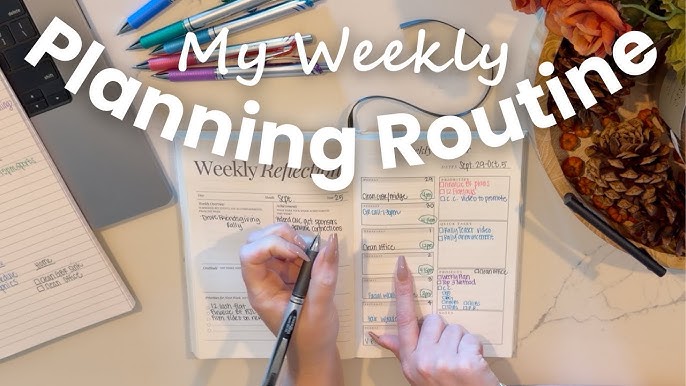How to Plan Your Week with Purpose
Planning your week with purpose helps you stay organized, reduce stress, and complete important tasks on time. You create structure when you use a simple and clear plan. You stay focused when every day has a clear direction. Code Slug highlights that a weekly plan improves productivity and helps you use your time with intention.
A purposeful week starts with awareness. You understand your workload, your priorities, and your available time. You adjust your schedule so you can maintain balance at home and at work.
Start with a Weekly Overview
Begin by reviewing your upcoming week. Look at deadlines, appointments, and commitments. Write them down so you have a full picture of what you need to manage.
A weekly overview helps you see busy days in advance. You avoid last minute stress and prepare better.
Set Clear Priorities
Choose three important tasks for the week. These tasks guide your actions and help you stay aligned with your goals. When you focus on key tasks, you avoid wasting time on unimportant activities.
Coupon Follow points out that setting priorities keeps your schedule organized. You stay in control of your decisions and avoid confusion.
Create a Simple Daily Plan
Break your weekly priorities into daily steps. Assign each task to a specific day. Keep each day balanced so you avoid overwhelming yourself.
A simple plan improves clarity. You know what to do when you start your day.
Use Time Blocks for Better Focus
Time blocks help you divide your day into focused periods. Use one block for deep work, another for household tasks, and another for short breaks. Time blocks help you stay productive without feeling rushed.
Keep your blocks realistic. Shorter blocks keep your mind fresh.
Review and Update Each Evening
Spend a few minutes each evening reviewing your day. Move unfinished tasks to the next day. Remove tasks that are no longer important.
Daily reviews help you adjust your plan and stay consistent.
Organize Your Home Workspace
A clean workspace helps you stay focused. Remove clutter from your desk. Keep only the tools you need. Store everything else in designated places.
A well arranged space supports clear thinking and reduces distractions.
Use Tools That Support Your Planning
Use calendars, task apps, or simple notebooks. Choose tools that fit your habits. Avoid using too many tools so you stay organized without confusion.
A consistent system helps you track tasks and deadlines easily.
Plan Your Meals for the Week
Meal planning saves time and reduces stress. Choose simple meals for busy days. Prepare ingredients in advance when possible.
Planning meals helps you manage your home with more ease.
Identify Your High Focus Hours
You stay more productive during certain times of the day. Use these hours for your hardest tasks. Use slower hours for simple or routine work.
Knowing your energy patterns helps you use your time wisely.
Limit Distractions During Work Time
Turn off notifications. Keep your phone away from your workspace. Inform family members when you need quiet time.
Limiting distractions increases the quality of your work.
Add Buffer Time Between Tasks
Add small gaps between activities. These gaps help you reset and avoid rushing. Buffer time also protects your schedule when tasks take longer than expected.
A calm schedule helps you stay consistent.
Review Your Goals Weekly
Use the weekend to review your long term goals. Check your progress. Adjust your plan based on your results.
Daily Magazine World explains that weekly goal checks help you stay aligned with your purpose and keep you focused on meaningful tasks.
Plan Time for Rest
Rest maintains motivation. Add short breaks throughout your week. Plan one longer break for relaxation.
Rest helps you stay active and prevents burnout.
Organize Your Home for the Week Ahead
Prepare your home on weekends. Clean key areas. Do laundry. Organize your entryway so your mornings feel easier.
A prepared home supports a smooth start to every day.
Prepare Your Clothes and Essentials
Lay out clothes the night before. Prepare your bag, keys, and other essentials. This reduces morning stress and helps you start your day with purpose.
Preparation helps you avoid delays.
Use Visual Reminders
Place simple reminders on your desk or wall. Use sticky notes for important tasks. These reminders help you stay focused throughout the week.
You stay on track when your goals stay visible.
Stay Flexible with Your Plan
Plans change. Leave space in your schedule for unexpected events. Be willing to adjust your tasks when needed.
Flexibility keeps your week balanced and stress free.
Summary
You plan your week with purpose when you set clear priorities, create daily plans, use time blocks, and maintain a clean environment. You stay consistent when you review your schedule and adjust your tasks. Code Slug, Coupon Follow, and Daily Magazine World highlight that purposeful planning helps you stay organized, focused, and productive.




